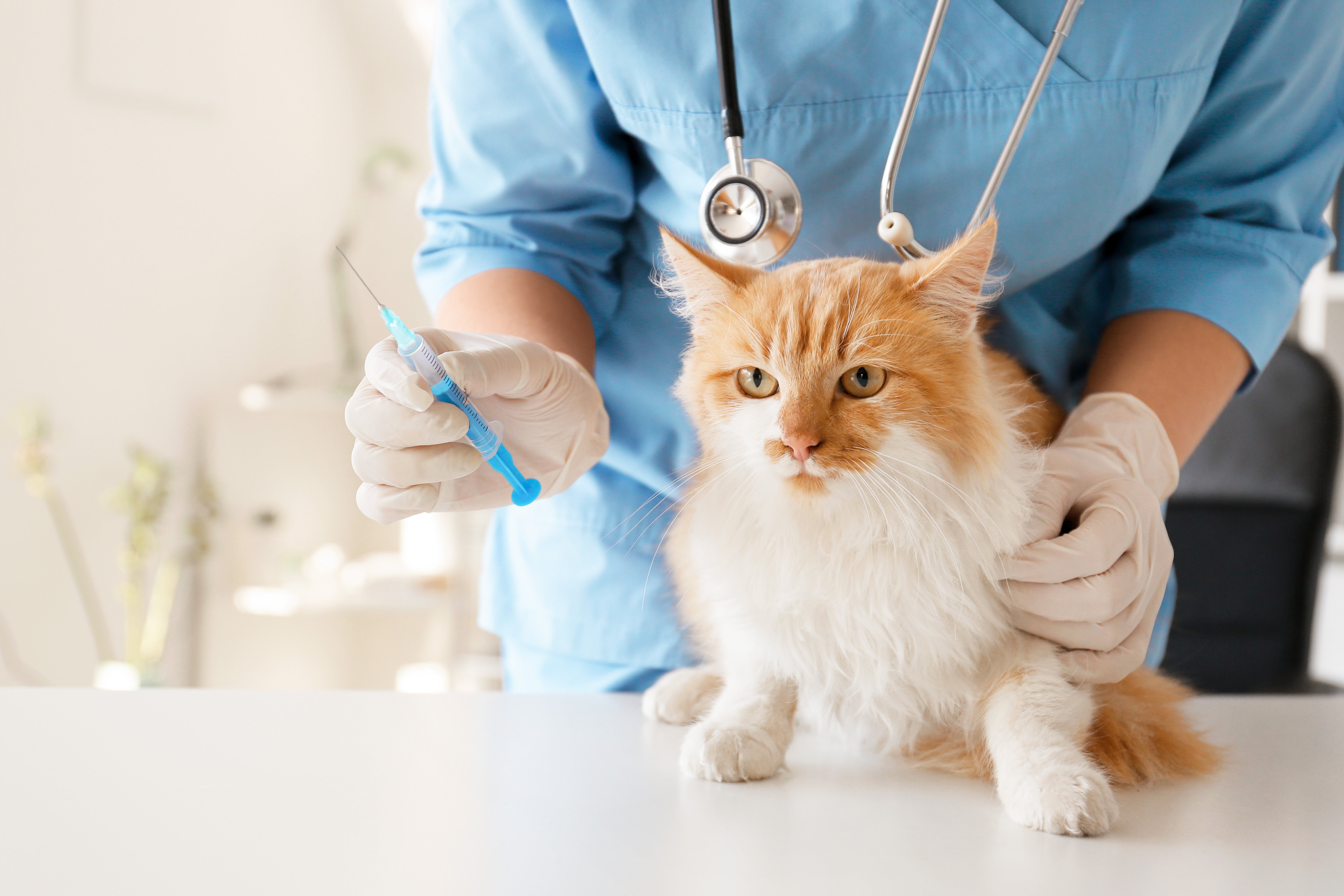
Unlike the common saying, cats do not have nine lives. Like humans and other pets, they need vaccines to protect them from diseases. Vaccinations strengthen your cat’s immune system. They need to start receiving vaccinations when they’re between six to eight weeks old. The process should go on until they are approximately 16 weeks old. After this, they will require an annual booster vaccine.
The vaccines help protect your cat against several diseases like:
Rabies
Rabies is a dangerous disease that often results in death in cats and other animals. The scary thing is that it can spread to humans. It causes fatal neurological abnormalities in both animals and humans. Vaccination from this disease is a vital part of the inoculation program for all pets. It is a requirement by law for many countries.
FeLV (Feline Leukemia Virus)
FeLV is a disease common in outdoor cats and can quickly spread to yours. The virus destroys your pet’s immune system, leaving it prone to cancerous infections like leukemia. The virus develops slowly and is difficult to detect without routine testing. To keep your pet safe, vaccinate it against FeLV.
Feline Calicivirus
Feline Calicivirus is a form of cat flu, like feline viral rhinotracheitis. They both affect the upper respiratory tracts in domestic cats. Symptoms of the disease include ulcers, fever, pneumonia, sneezing, loss of appetite, and coughing.
It is highly contagious and difficult to treat. When a cat with the disease recovers, it will remain a carrier. For this reason, it is important to vaccinate them as it is a way of curbing the disease.
Feline AIDS - Feline Immunodeficiency Virus (FIV)
FIV is a disease that compromises your cat’s immune system, leaving it vulnerable to many infectious diseases. Vaccination is the only way to control the disease as it has no cure. It spreads via bite wounds from outside cats that have the disease.
It is most common in male cats since they often go outside during mating season. Feline AIDS is similar to its human counterpart, though it is not contagious to people.
Feline Panleukopenia (Parvovirus)
Thanks to the widespread vaccination of this disease, it is less common than decades before. However, the risk of the disease remains. The highly resistant virus can survive up to 12 months outside a feline’s body.
Feline panleukopenia is fatal to most species of household cats. Its symptoms include severe dehydration, depression, fever, and gastroenteritis, which is often fatal. The disease is highly contagious to other cats. Felines that recover from it remain carriers, hence the need for vaccination.
FIP (Feline Infectious Peritonitis)
FIP results from a form of feline coronavirus. The feline viral strain is common and affects both domestic and wild cats. It does not have any severe symptoms apart from minor diarrhea. However, the disease can mutate into feline infectious peritonitis virus.
Cat vaccinations do not have a 100 percent guarantee. But under expert supervision from a vet, you can give your pet a fighting chance. Couple the vaccination with appropriate sanitation and nutrition for additional defense.
For more on cat vaccinations, visit Dr. Mike’s Affordable Vet Care at our office in Arlington, Texas. You can also call (817) 663-8160 to book an appointment today.









